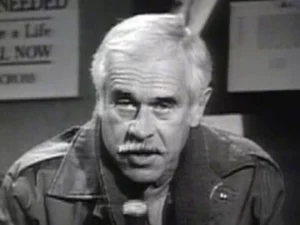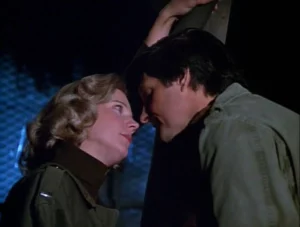When MASH first aired in 1972, nobody expected a comedy about a mobile army surgical hospital during the Korean War would become one of television’s most beloved and contentious series. Over its eleven-season run, the show masterfully balanced humor with hard-hitting social commentary, but not every episode landed smoothly with audiences. Some pushed boundaries so far that they sparked heated debates, generated angry letters, and even faced censorship attempts. These are the ten most controversial MASH episodes that still ignite passionate discussions decades later.
“George” – Season 2, Episode 22
This groundbreaking episode tackled homosexuality at a time when the topic was virtually taboo on network television. When a decorated soldier faces discharge for being gay, Hawkeye and the team rally to his defense. The episode drew both praise for its progressive stance and criticism from conservative groups who felt it was inappropriate for primetime. CBS received thousands of letters, split almost evenly between support and outrage. What made “George” particularly controversial was its sympathetic portrayal of a gay character during an era when most television shows either ignored or mocked LGBTQ individuals.
“The Interview” – Season 4, Episode 24
Shot entirely in black and white as a documentary-style episode, “The Interview” broke from MASH’s traditional format so dramatically that network executives initially resisted airing it. The episode featured cast members speaking directly to camera, sharing their characters’ war experiences in raw, unscripted-feeling monologues. Critics argued it was pretentious and broke the show’s fourth wall too severely. However, others praised its experimental approach and emotional authenticity. The controversy centered on whether MASH had the right to deviate so completely from its established formula.

“Preventive Medicine” – Season 7, Episode 22
Perhaps no episode generated more moral debate than this one. Hawkeye deliberately makes a colonel sick to prevent him from sending troops on a dangerous mission. While Hawkeye believes he’s saving lives, B.J. argues that intentionally harming a patient violates medical ethics. The episode sparked intense discussions about whether the ends justify the means. Medical professionals wrote letters questioning the show’s portrayal of doctor-patient ethics, while others defended Hawkeye’s utilitarian calculus. The ambiguous ending left viewers deeply divided about who was right.
“Dreams” – Season 8, Episode 22
This surreal episode featured the characters’ nightmares and subconscious fears in bizarre, often disturbing sequences. Colonel Potter dreams of his horse leading wounded soldiers, while Hawkeye envisions himself trapped in a surgical gown made of barbed wire. The experimental nature and dark psychological imagery shocked viewers expecting MASH’s typical blend of comedy and drama. Many felt the episode was too weird and inaccessible, while supporters argued it brilliantly depicted the psychological trauma of war.
“Goodbye, Farewell and Amen” – Series Finale
The series finale remains controversial not for its quality but for its harrowing central storyline. Hawkeye suffers a mental breakdown after repressing a traumatic memory involving a Korean woman and her baby on a bus. The graphic nature of this revelation, combined with the episode’s 2.5-hour runtime, divided audiences. Some felt it was too dark and depressing for a finale, while others praised its unflinching look at war’s psychological cost. The episode’s massive viewership couldn’t prevent the backlash from those who wanted a lighter sendoff.
“The More I See You” – Season 10, Episode 10
This episode featured Hawkeye falling for a visiting nurse who reminded him of his first love. The controversial element was the explicit nature of their relationship for 1980s television, including frank discussions about sex and intimacy. Conservative watchdog groups protested what they saw as inappropriate content for a show that families watched together. The episode highlighted the growing tension between MASH’s desire to portray realistic adult relationships and network standards.

“Hawkeye” – Season 4, Episode 18
An entire episode featuring only Alan Alda as Hawkeye, injured and alone, talking to a Korean family who doesn’t understand English. While many praised this tour-de-force performance, others found it self-indulgent and boring. The controversy stemmed from whether MASH had become too focused on Hawkeye at the expense of ensemble storytelling. Critics accused the show of becoming “The Alan Alda Hour.”
“Bless You, Hawkeye” – Season 9, Episode 17
Hawkeye’s psychosomatic sneezing leads to therapy sessions revealing childhood trauma. The episode’s extended psychoanalysis scenes felt more like a drama therapy session than entertainment to many viewers. Detractors argued MASH was becoming too preachy and self-serious, abandoning the comedy that made it special. Supporters countered that the show was maturing and tackling deeper emotional truths.
“The Joker Is Wild” – Season 11, Episode 4
B.J.’s increasingly cruel practical jokes on Hawkeye culminate in genuine hurt feelings and damaged friendship. The episode’s portrayal of bullying behavior from a beloved character disturbed many fans who felt it made B.J. unlikeable. The controversy centered on whether the show went too far in showing the dark side of coping mechanisms during war.

“Death Takes a Holiday” – Season 9, Episode 5
Set during Christmas, the medical staff desperately tries to keep a critically wounded soldier alive until after midnight so his children won’t associate Christmas with their father’s death. The manipulation of death records, while well-intentioned, sparked ethical debates about medical honesty and the appropriateness of such deception. Religious viewers particularly objected to what they saw as playing God.
These controversial episodes demonstrate MASH’s willingness to take risks and challenge viewers. Whether you found them brilliant or offensive, they sparked conversations that extended far beyond the television screen, cementing MASH’s legacy as more than just entertainment—it was cultural commentary that refused to play it safe.